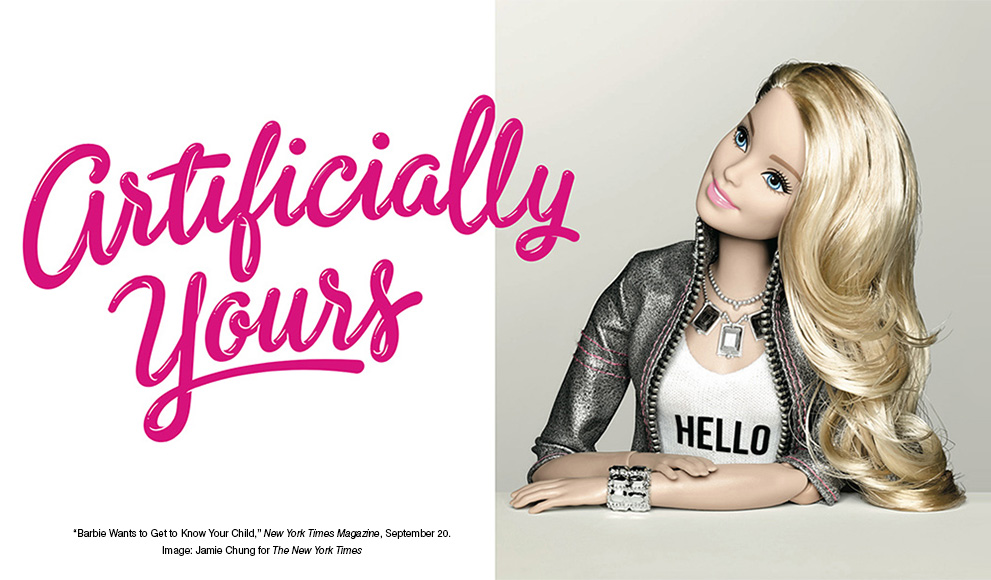Professor Tracy Gleason Spoke With The New York Times Magazine About Mattel’s New Artificially Intelligent Barbie

Mattel will release a new talking Barbie this November that uses the same artificial intelligence (A.I.) and speech recognition technology that has given cell phones, cars, and other devices the ability in recent years to engage in something like conversation.
"For adults, this new wave of everyday A.I. is nowhere near sophisticated enough to fool us into seeing machines as fully alive... but things are different with children, because children are different," wrote James Vlahos, author of a story that ran in the New York Times Magazine this month. Vlahos spoke with Tracy Gleason, professor of psychology, for the article.
For psychologists like Gleason, who study the imaginative play of children, the primary concern with A.I. toys is that they may be limiting for children. "She is who she is," Gleason told the magazine, referring to the doll. "That might be a lot of fun, but it is definitely less imaginative, child-generated and truly interactive than someone with whom you can imagine whatever you want."
Gleason is a developmental psychologist who studies relationships, real and imagined, with a focus on young children's imaginary companions. In an email, she explained that the committee designing the toy will make decisions about the appropriate personality for Barbie, including what she values and the nature of her responses.
"Those decisions have two major implications," Gleason wrote. "First, what children can imagine about Barbie is constrained. If she has a distinct personality, then she can no longer be whatever a child wants her to be, nor can she evolve over time as the child matures...Second, they send a host of messages to children playing with Barbie about what they are supposed to think, what they should care about, and what sorts of responses are appropriate in conversation."
As for the long term impact, Gleason said she worries about the influence on creativity and imagination. She wrote, "If we never have to use [creativity and imagination], well...we are unlikely to develop them and keep them working."
Read the article, “Barbie Wants to Get to Know Your Child” on the New York Times Magazine website.
